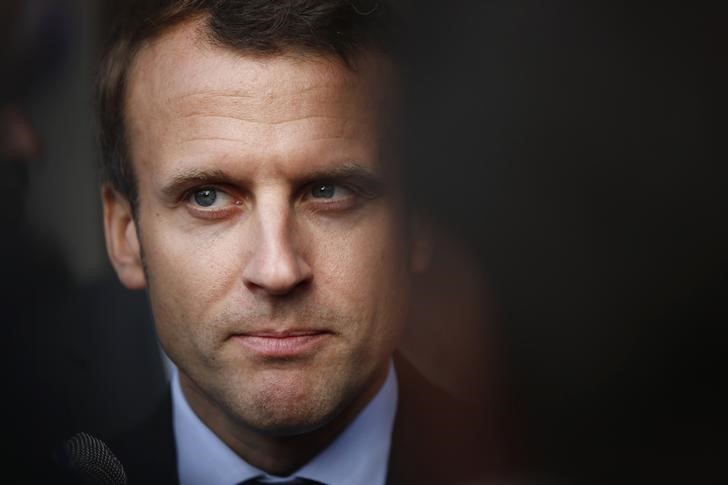(Bloomberg Opinion) -- It took Emmanuel Macron just one speech to ditch his entire strategy for shaking up the euro zone. Upon his election, the French president pledged to respect the monetary union’s budget rules to regain credibility with Germany. Fiscal consolidation and structural reforms weren’t just a way to strengthen the French economy, they were also the key to unlocking significant reforms of the euro zone – including a shared budget.
On Monday night, in his response to the gilets jaunes protests, Macron changed his priorities. Noting that the country was in a state of “social and economic emergency,” he announced a string of measures aimed at helping low- and middle-income workers. These include a 100 euro a month increase in the minimum wage and ending levies on overtime work.
These policies are expected to cost about 10 billion euros ($11.3 billion) according to some initial estimates. Macron wants to crack down on tax avoidance, but the smart money is on his package being funded mainly via extra borrowing. France’s budget deficit was expected to rise to 2.8 percent of gross domestic product next year, largely because of one-off measures, and fall to 1.4 percent in 2020. It may now climb to as much as 3.5 percent, according to Les Echos, a French newspaper.
The European Commission will find it hard to turn a blind eye. France had already pledged to reduce the structural deficit by 0.2 percent of GDP next year, according to the Commission’s estimates, less than what Brussels expected. If sustained over time, the new giveaways could turn this reduction into an outright increase, putting France in the same camp as Italy. Hardly the way to convince Berlin that Paris has abandoned its old ways.
As has been noted, another increase in the French deficit would also smack of hypocrisy in Rome. Macron’s government has teamed up with the rest of the euro zone to support the Commission’s rejection of Italy’s budget. That decision was tough but fair: Italy is planning to keep its structural deficit unchanged for each of the next three years, which would make the country vulnerable in a new recession. But it’s hard to see how Macron can now point the finger at Matteo Salvini, leader of Italy’s ruling League party, when they’re both putting political considerations ahead of prudence. Macron has form already in Rome for being hypocritical after a summer dispute over immigration.
The president’s supporters will no doubt point to mitigating circumstances. The Yellow Vest revolt – and the support it received from much of the population – risked undermining French democracy. The European economy is slowing, so some fiscal loosening might not be a bad thing. France’s debt, at about 100 percent of GDP, is lower than Italy’s. France has embarked on a round of structural reform – including changes to the labor market – while Italy is rowing back on reforms introduced by previous governments.
Yet why should the threat of social unrest in France matter more than in Italy? And if this is the right time for fiscal stimulus, then why should Rome’s planned deficit of 2.4 percent of GDP be a concern? As for the differences between Italy and France, there’s no doubt the latter is in a slightly better place economically, but the political optics of letting France off the hook while doubling down on Italy would be terrible.
Nonetheless, it’s wrong to put all the blame on Macron for going rogue and prioritizing his domestic interests. Germany left him in an impossible spot by diminishing his grand unifying vision for the euro zone. Berlin has said “nein” to the completion of the banking union, including a joint insurance for deposits, and has offered only tepid support to setting up a stabilization fund. Other French plans, including a digital tax, were watered down too. Macron had very little to show at home to prove his strategy was succeeding.
Whomever the culprit, any remaining hope for Macron’s euro zone dream died with this week’s speech. From Italy, to Germany, to France, Europe’s politicians are looking inward. No one cares about strengthening the monetary union.
